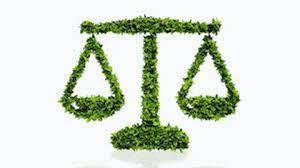ROLE OF THE JUDICIARY IN THE GROWTH OF ENVIRONMENTAL JURISPRUDENCE
AUTHOR – VISHNU PRIYA NARAHARISETTI, STUDENT AT SYMBIOSIS LAW SCHOOL, NOIDA, SYMBIOSIS INTERNATIONAL (DEEMED UNIVERSITY), PUNE
Best Citation – VISHNU PRIYA NARAHARISETTI, ROLE OF THE JUDICIARY IN THE GROWTH OF ENVIRONMENTAL JURISPRUDENCE, ILE JOURNAL OF ADVANCED LEGAL STUDIES (ILE JALS), 1 (1) of 2023, Pg. 19-22, APIS – 3920 – 0056 | ISBN – 978-81-964391-3-2
Abstract
This article explores the significant role of the judiciary in shaping and structuring environmental laws in the country. The development of environmental law can be traced back to the Stockholm period, which marked a crucial moment in global environmental awareness. Since then, the judiciary has played a crucial role in refining and shaping environmental legislation to address emerging challenges and societal needs. The Stockholm Conference, held in 1972, was instrumental in establishing international recognition of environmental issues and laying the groundwork for essential principles like sustainable development. Following this conference, many nations, including India, acknowledged the necessity of enacting comprehensive environmental laws to tackle various ecological concerns. In this endeavor, the Indian judiciary has been at the forefront, displaying a proactive and progressive approach to safeguarding the environment. As the highest judicial body, the Supreme Court of India has played a pivotal role in interpreting and applying constitutional provisions to protect the environment.
Keywords – Environmental laws, Polluters pay, Sustainable development, NGT, Pollution Control, Stockholm & Rio.
